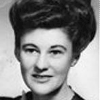AustLit
-
In her private correspondence with Susan Pfisterer, Oriel Gray expresses the tension that has pervaded her life and work:
'While I think that Internationalism should be the overwhelming aim and direction of the human race as a whole, there are times when nationalism is important and even essential. My first full-length play Lawson was written when Australians were rediscovering the uniqueness of this country, faced with Japanese aggression... Nationalism can be a horrible and destructive force. Love of your own country, a sense of place, of belonging is a necessary thing and has been accepted even in law, as progressive Aboriginal legislation has proven... a national dream and conscience is important and a country that loses its legends loses its soul.' (qtd. in Playing with Ideas, 173-74)
Gray appears to be aware of the contradiction inherent to holding 'internationalism' together with 'nationalism': aware, and yet accepting of it. She makes no attempt to resolve it, seeming content to acknowledge that each in turn is utterly necessary, that the forging of a national identity is both a 'horrible and destructive force' and the stuff of 'dream and conscience'. It is her place in the borderzone that allows her, or perhaps forces her, to acknowledge this, because it is in the borderzone – with its connection to the homeworld, and its view of the alienworld beyond – that these two conflicting necessities meet.
In and through borderzone and liminal spaces, Gray reworked the historical space in which she wrote, engaging in a constant questioning of the exclusionary tendencies of the homeworld even as she sought to negotiate international concerns from firmly within it. This view of her plays, of the social, production and dramatic spaces of their time and writing, should also be a call to rework ours. Our history of national drama, in the full scope of its concern with nation-wide theatre and national identity, is neither complete nor accurate without these playwrights of the amateur theatres, these political radicals, these women, these hosts that accompany Gray in the borderzones of our history. As Gray herself practices in her works, we are called to recognise the homeworld – in both its asserted identity and the means by which it asserts itself – from the perspective of its borderzones. It may in fact be the best place from which to view it.
You might be interested in...




